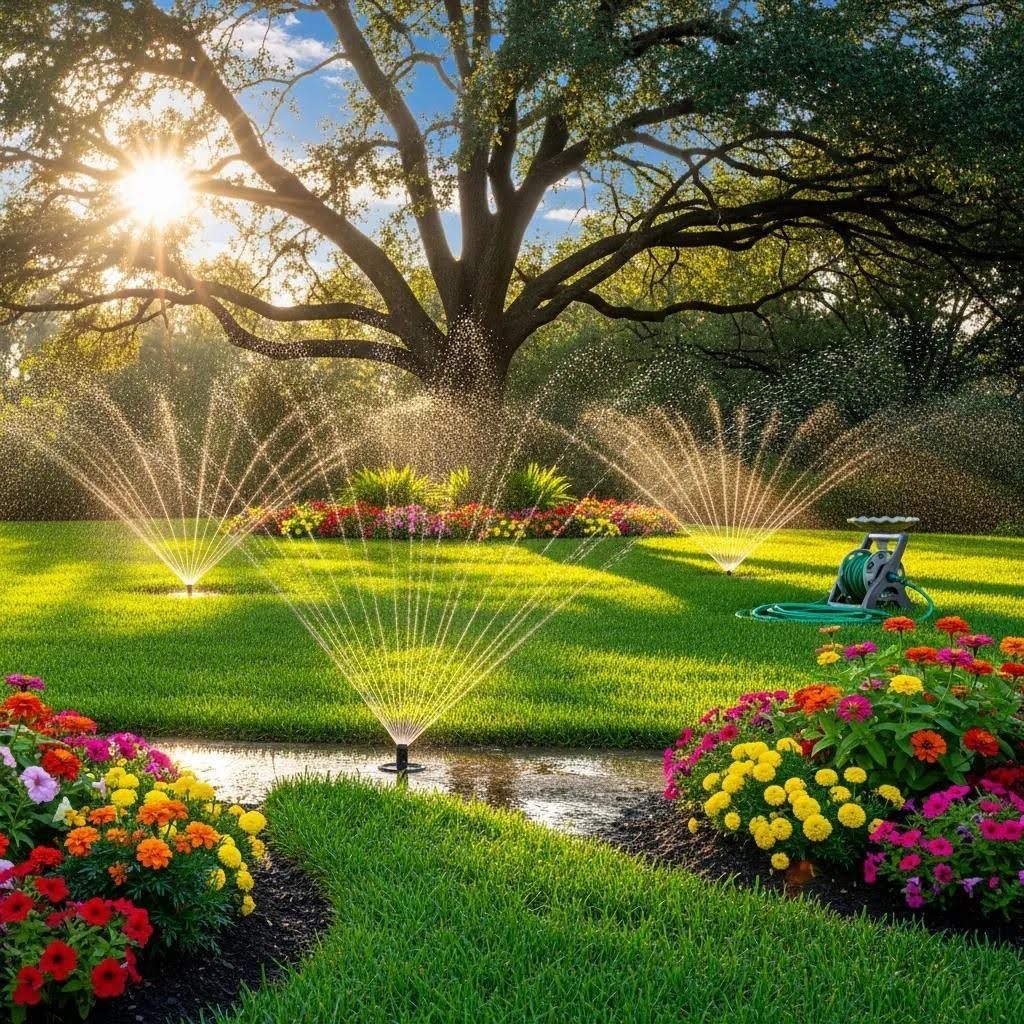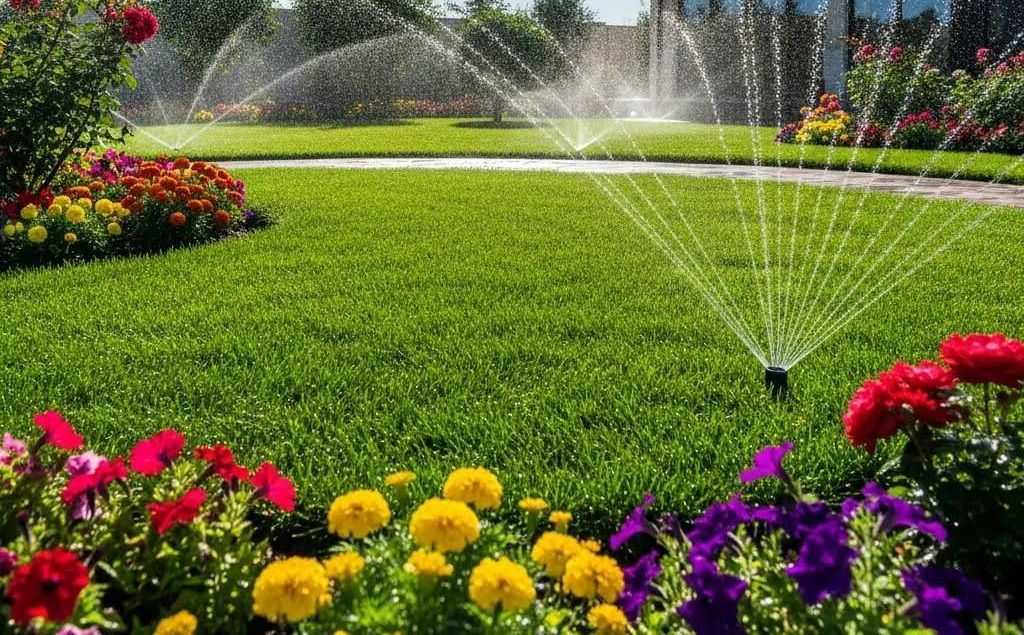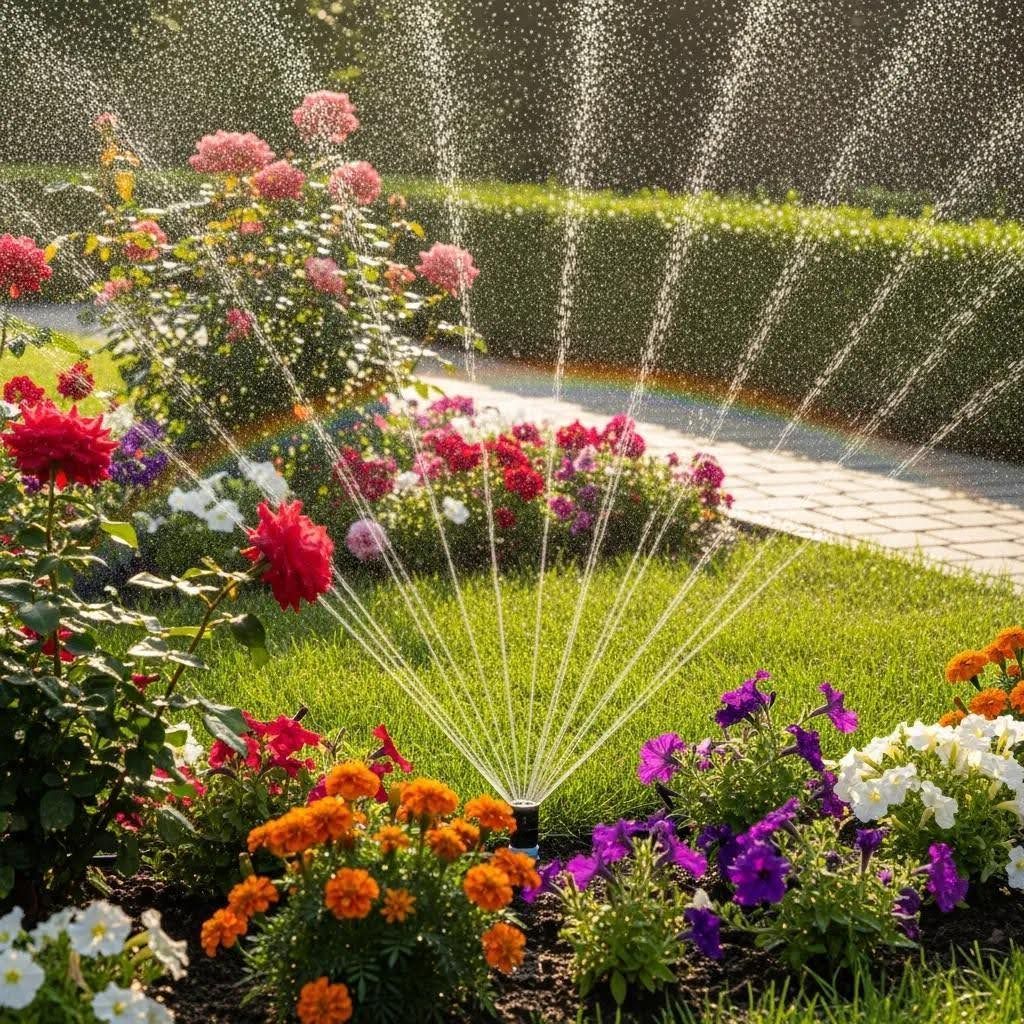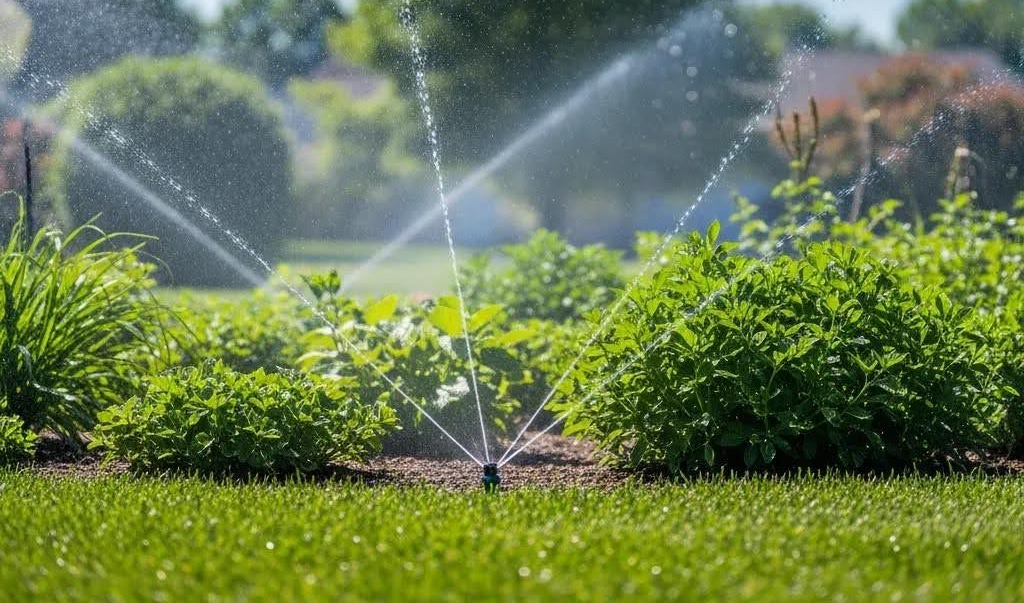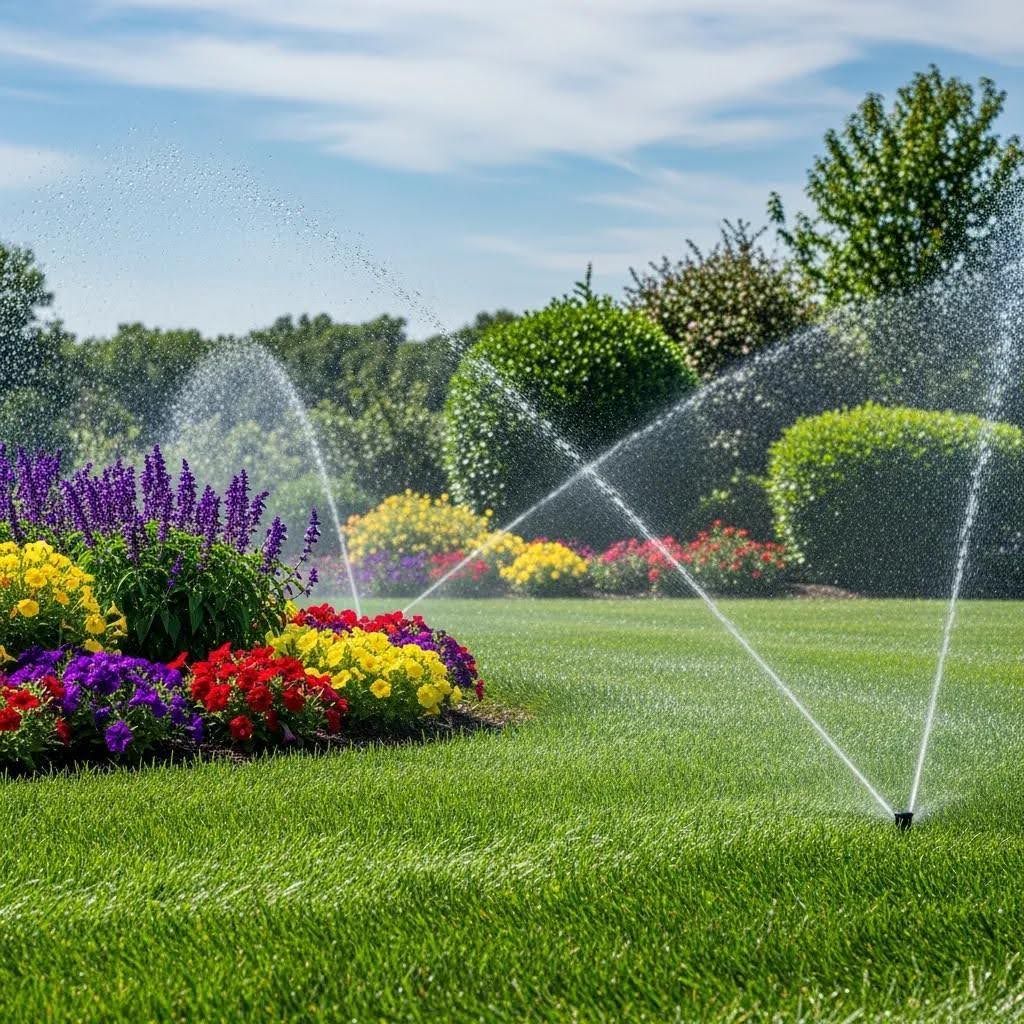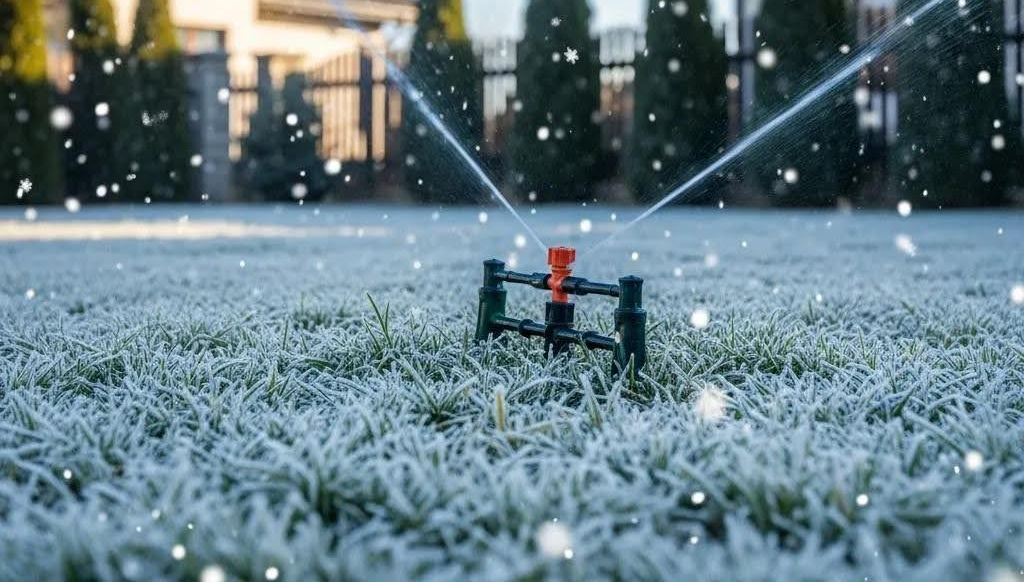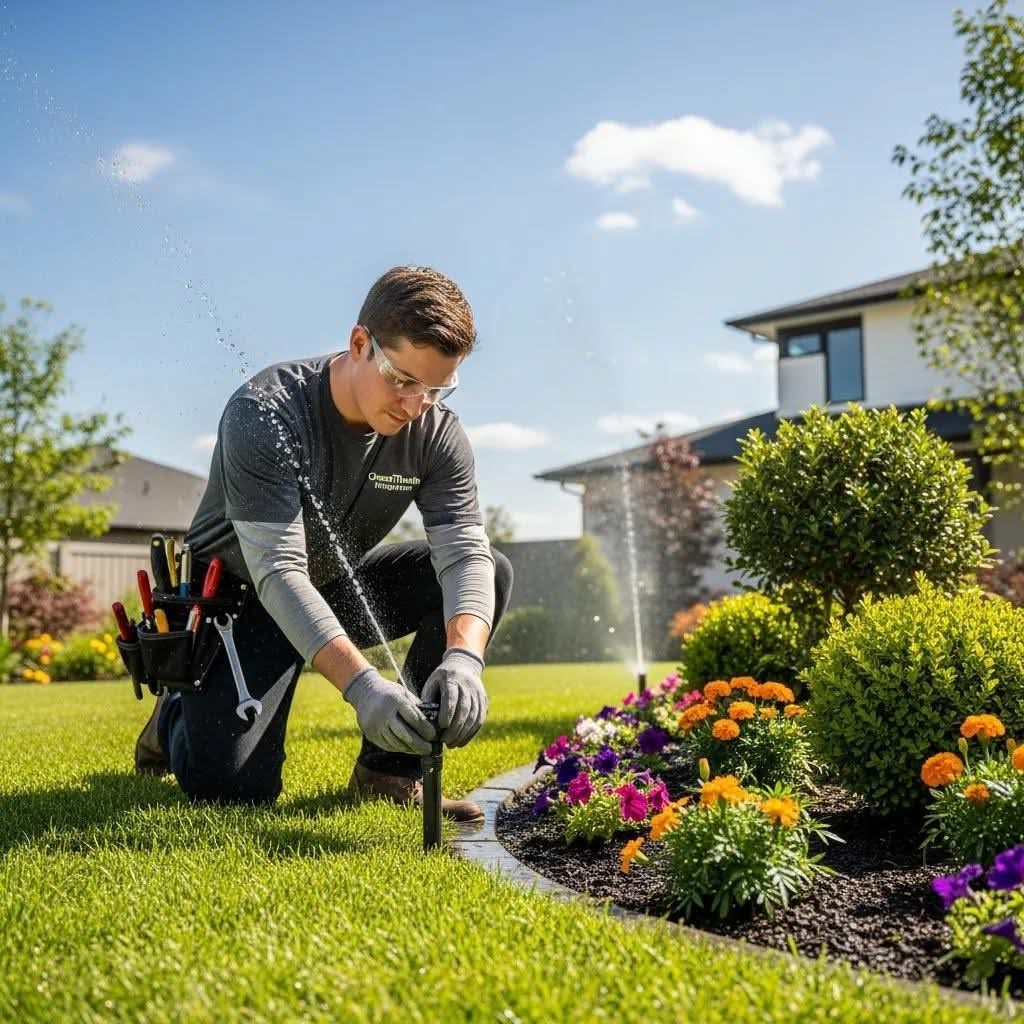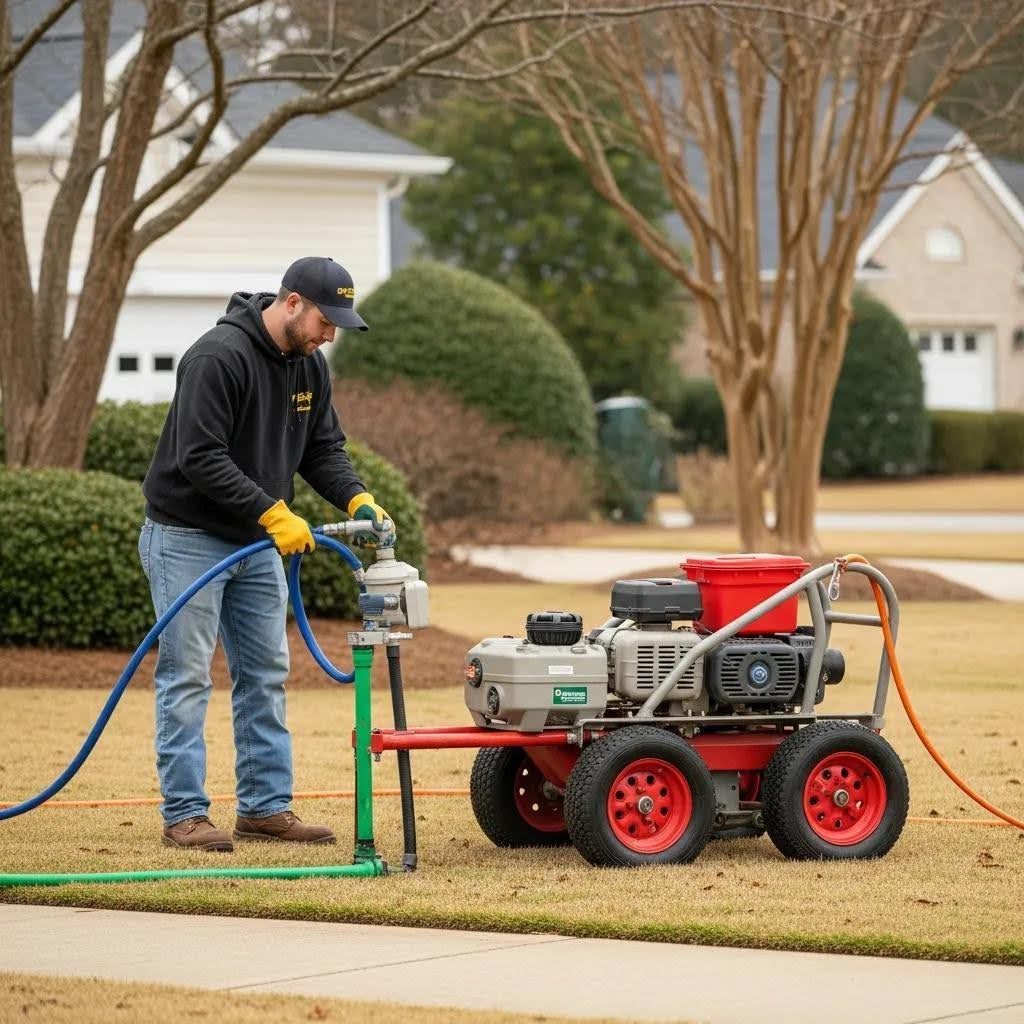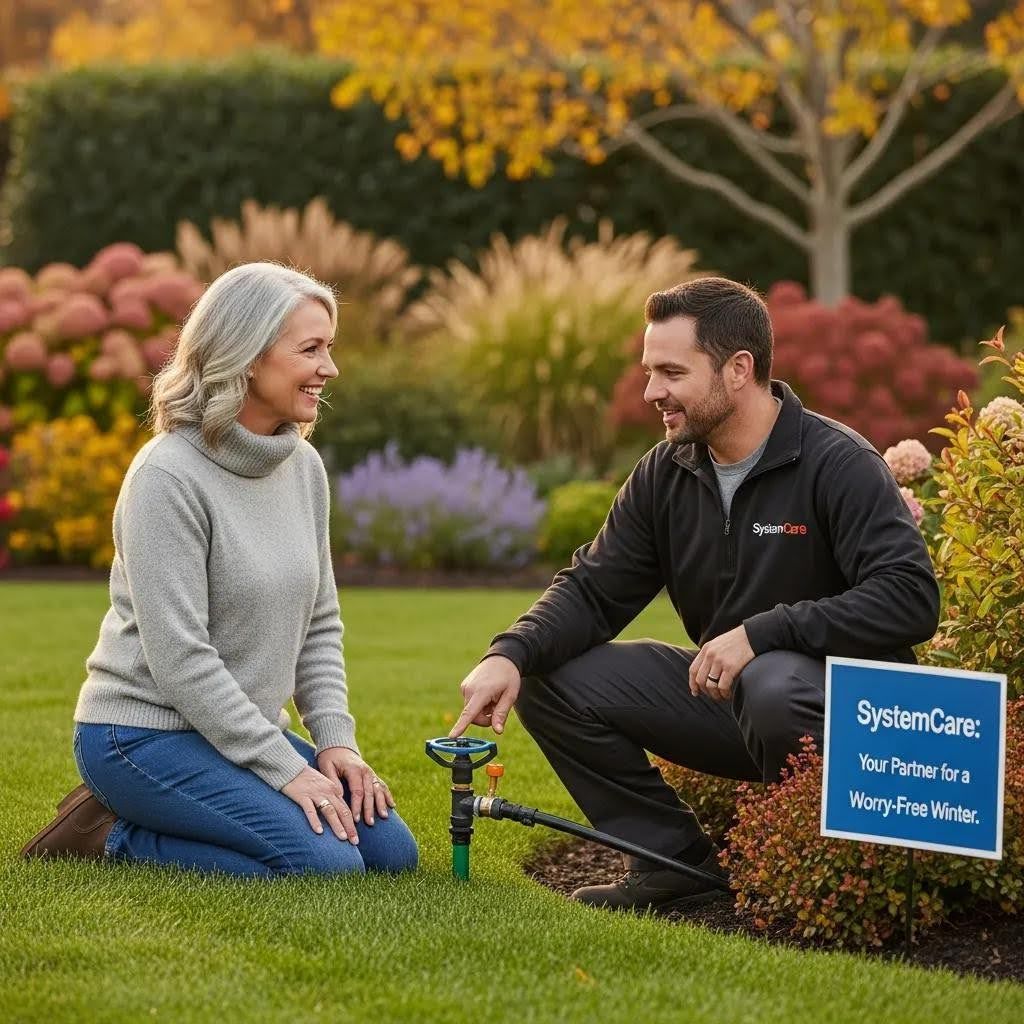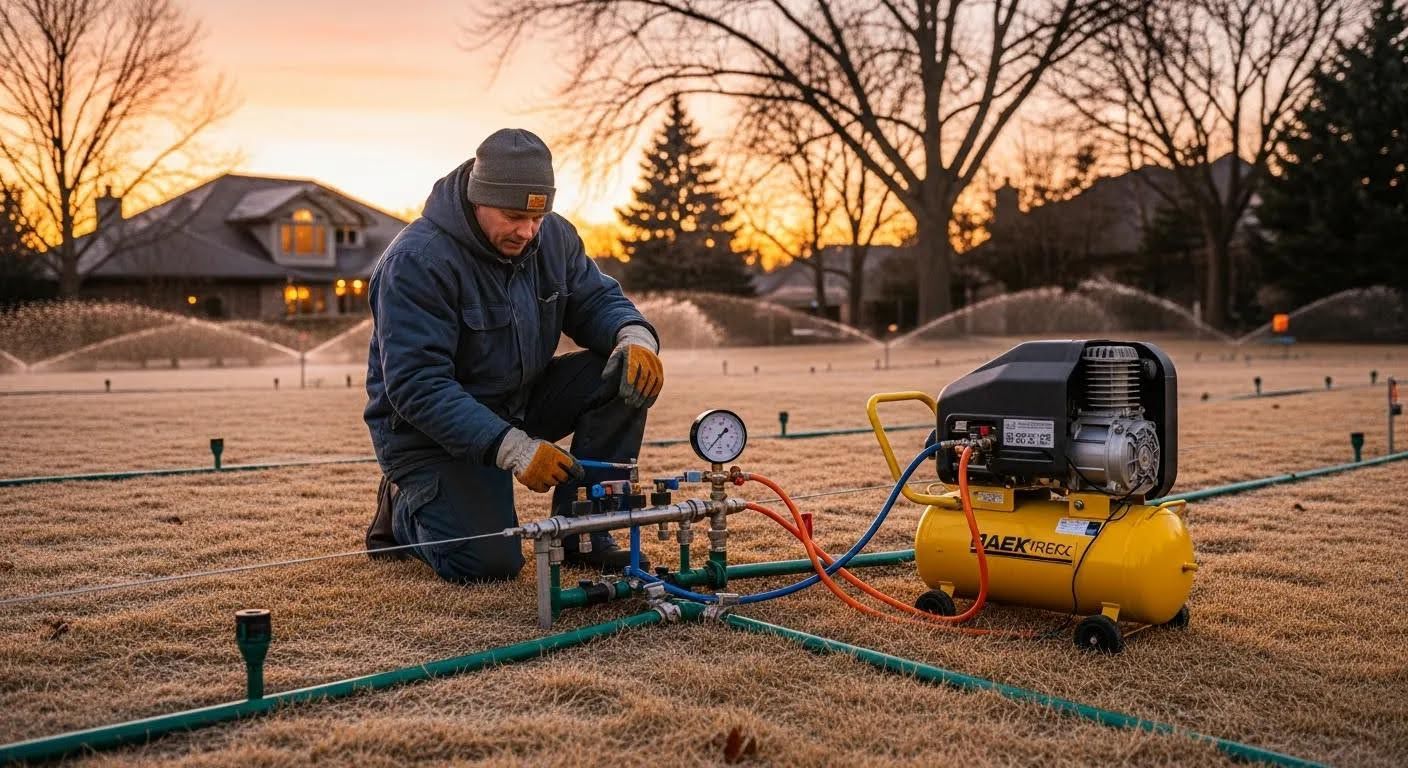What Does a Landscape Handyman Do? A Homeowner’s Guide to Water & Outdoor Maintenance in Hampton Roads
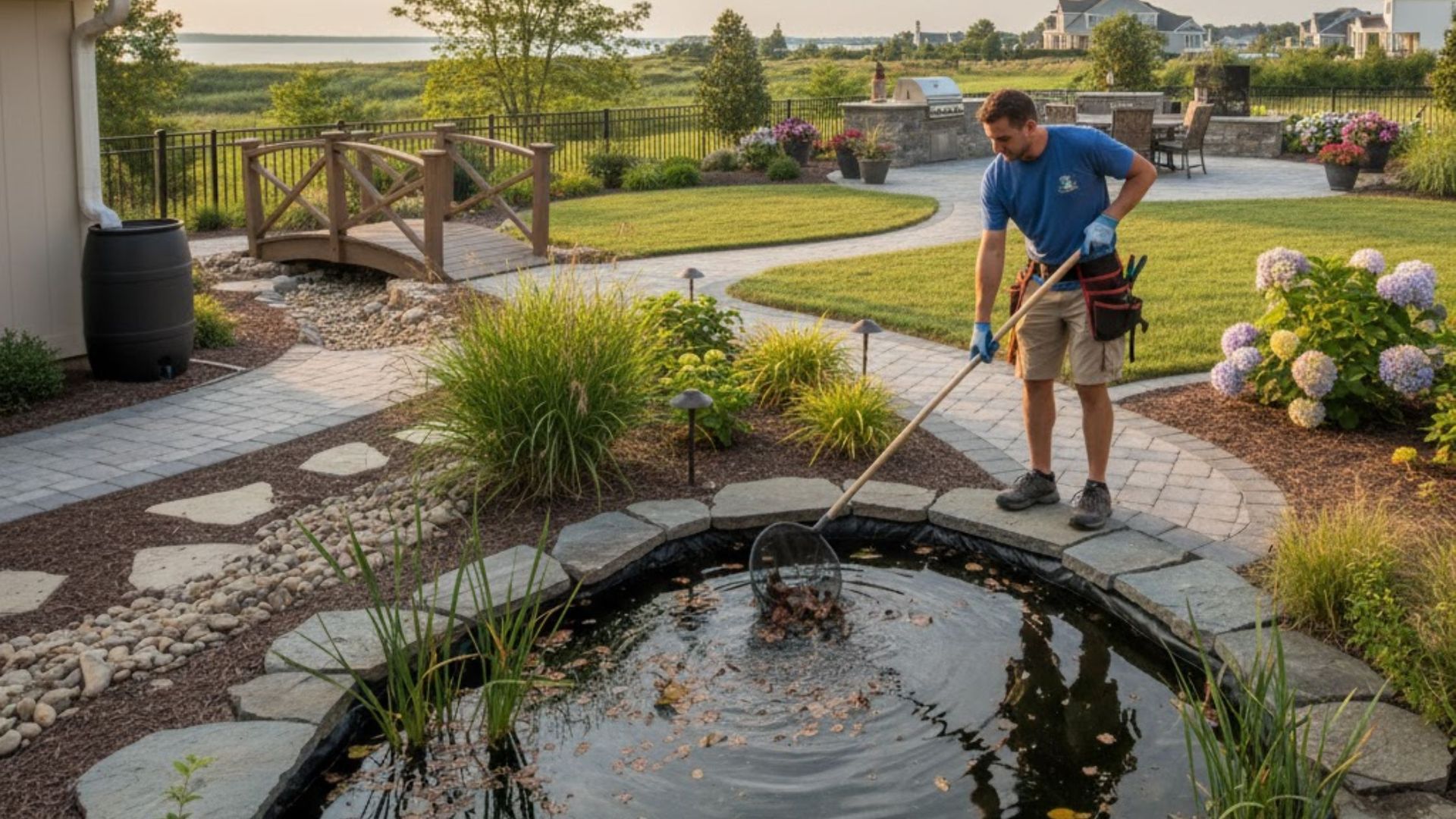
The maintenance demands of owning a home, especially one in a unique coastal environment like Hampton Roads, can quickly escalate beyond routine mowing and weeding. When you factor in complex water management needs—from irrigation systems to yard drainage and water features—the help you need often goes beyond a typical lawn service or a general contractor. A skilled landscape handyman is a versatile professional who bridges the gap between basic yard work and specialized water system repair, offering an essential level of expertise for property owners in Coastal Virginia. They possess the knowledge to handle general outdoor upkeep while specializing in the delicate systems that keep your landscape vibrant and protected from the elements. Seeking a specialist in Landscape Handyman Water Services ensures your property not only looks good but is structurally sound and protected against the region's common water-related challenges. This guide is designed to illuminate the full spectrum of services this professional provides, helping you understand how to safeguard your home and garden in this beautiful but demanding area.
What Exactly Does an Outdoor Handyman Handle in Coastal Virginia?
An outdoor handyman specializing in landscaping is fundamentally a generalist with specific, deep knowledge of exterior property elements, particularly those related to water. In Hampton Roads, where weather can be unpredictable and the nearby Chesapeake Bay influences everything from soil salinity to drainage, this combined expertise is invaluable. They handle the small, medium, and sometimes large jobs that a major landscaping firm might overlook or that require more immediate attention than a general maintenance crew can provide. The core of their work is maintaining the functionality, safety, and aesthetic quality of your property’s exterior features.
The Core Difference: Handyman vs. Specialized Landscaper
The distinction between these service providers lies mainly in scale and specialty. A dedicated landscaper often focuses on large-scale design, planting, and seasonal lawn treatments over an entire property, typically using large, specialized machinery. A landscape handyman, however, excels at precision work, troubleshooting, repair, and smaller installations. They are the ideal person to call for fixing a broken fence post, repairing a walkway, or, critically, performing urgent maintenance on an irrigation system that has suddenly malfunctioned. Their versatility saves you time and money by preventing you from having to hire multiple contractors for intertwined tasks. They bring together general maintenance skills with specific technical aptitude.
General Outdoor Maintenance Tasks
Beyond the highly technical water systems, a landscape handyman manages a diverse portfolio of typical homeowner needs that contribute to the overall health and appearance of the outdoor space. These tasks are crucial for maintaining curb appeal and preventing minor issues from turning into expensive structural repairs over time.
Typical services include:
- Minor Structural Repairs: Fixing loose deck boards, re-securing wobbly railings, or repairing damaged sections of fencing caused by seasonal storms and wind.
- Walkway and Patio Maintenance: Re-setting uneven pavers, filling cracks in concrete surfaces, and power washing exterior hardscapes to remove algae, moss, and mildew.
- Gutter and Downspout Cleaning: Ensuring all rainwater management components are clear and directing water away from the foundation, a critical service in the wet climate of Coastal Virginia.
- Lighting and Electrical: Installing or repairing low-voltage landscape lighting, replacing faulty timers, and ensuring outdoor outlets are properly protected from moisture and the elements.
- Garden Feature Upkeep: Repairing raised garden beds, installing small retaining walls to prevent soil erosion, or refreshing mulch and stone layers around planting beds.
This broad range of capabilities means that one reliable professional can often address a checklist of issues in a single visit, simplifying the home management process.
Specialized Landscape Handyman Water Services for Hampton Roads Properties
The coastal location of Hampton Roads presents unique challenges that are primarily managed through effective water systems. The combination of heavy seasonal rain, occasional tropical storm remnants, and proximity to saltwater bodies means proper irrigation and drainage are not just about aesthetics, but about protecting your primary investment—your home. This is where specialized Landscape Handyman Water Services become indispensable, moving beyond general repair into critical infrastructure management.
A qualified professional offering Landscape Handyman Water Services is uniquely equipped to manage the full life cycle of your exterior water features and utility components. This includes everything from the initial installation and programming of sophisticated smart controllers to the diagnosis and repair of hidden underground leaks. Given the complexity of modern systems and the importance of water conservation, having an expert who understands pressure, flow rates, and local climate needs is non-negotiable for serious landscape maintenance.
The Critical Role of Irrigation System Management
Irrigation systems are the heart of a healthy lawn and garden, yet they are often hidden and forgotten until a problem surfaces. A landscape handyman specializing in water systems is a dedicated irrigation troubleshooter and maintenance expert. Their work ensures that your system delivers the exact amount of water needed, maximizing plant health while minimizing utility costs and water waste.
Key irrigation services include:
- Seasonal Start-Up: Re-pressurizing the system in the spring, checking for freeze damage, and testing all zones and heads for proper function and alignment.
- Winterization: Carefully shutting down and blowing out the system with compressed air in the late fall to protect pipes and components from freezing, a vital annual step in Virginia’s climate.
- Leak Detection and Repair: Identifying and fixing subtle leaks in buried PVC pipes or fittings, which can often be indicated by unexplained soggy spots in the lawn or a sudden increase in the water bill.
- Head Adjustment and Replacement: Repairing or replacing damaged sprinkler heads (often broken by mowers or foot traffic), and adjusting their spray patterns and arcs to ensure maximum coverage and avoid watering sidewalks or driveways.
- Controller Programming: Setting up efficient watering schedules based on local weather conditions, plant type (hydrozoning), and adherence to any local water restrictions that may be in place.
Regular maintenance by a professional ensures the system operates at peak efficiency. When looking at your exterior systems, it is vital to know that a trusted brand like HR Irrigation is ready to provide these specialized solutions for homeowners in the area. Checking our reviews will show you the kind of dedication and quality we bring to every property we serve in Hampton Roads.
Addressing Coastal Drainage and Runoff Challenges
Coastal areas inherently struggle with excessive moisture and poor runoff management. The flat topography of many areas, coupled with a naturally high water table, means that heavy rainfall can quickly saturate the ground, leading to standing water, foundation issues, and property damage. An outdoor handyman’s role often extends into engineering simple yet effective drainage solutions.
Effective drainage management includes:
- French Drain Installation: Installing perforated pipes within trenches to collect excess subsurface water and redirect it safely away from the house and towards a designated discharge area.
- Grate and Catch Basin Maintenance: Cleaning and clearing exterior drains and basins of leaves, sand, and debris to ensure water flows freely during a storm.
- Erosion Control: Designing and implementing minor hardscape elements or planting native, deep-rooted species to stabilize soil on slopes and prevent valuable topsoil from washing away into storm drains or the Chesapeake Bay.
- Sump Pump Discharge Relocation: Ensuring that water collected by basement or crawl space sump pumps is discharged far enough away from the foundation to prevent it from cycling straight back into the system.
The movement and management of water across your property are non-negotiable elements of long-term home preservation. Without appropriate measures, water damage and wood rot can silently undermine the structure of your home, leading to significant, costly repairs down the road.
Water Feature Maintenance and Pond Care
Many homeowners in Hampton Roads enjoy decorative ponds, fountains, and small streams that add tranquility and character to their outdoor spaces. However, these features are complex mini-ecosystems that require specific maintenance beyond simple cleaning. A landscape handyman with water expertise can handle the mechanical and aesthetic upkeep.
Services related to water features include:
- Pump and Filtration Systems: Troubleshooting and repairing circulation pumps, checking filters for clogs, and ensuring water quality remains balanced to prevent excessive algae growth.
- Liner and Leak Repair: Locating and patching small tears in pond liners, which can lead to significant water loss and require constant refilling.
- Aquatic Plant Management: Trimming and dividing aquatic plants and removing invasive species to maintain a balanced, healthy pond environment.
- Lighting and Electrical: Maintaining the underwater lighting, fountain mechanics, and ensuring all electrical connections are safe, sealed, and protected from the constantly wet conditions.
Understanding Backflow Prevention and Local Compliance
A critical, often legally required aspect of managing a home water system is backflow prevention. Backflow occurs when contaminants (like fertilizers, pesticides, or dirty water) are drawn back into the main municipal water supply due to a pressure drop in the system. Because of the inherent risk, local jurisdictions in Virginia mandate that irrigation systems have functional backflow preventers, which must be tested annually. The Virginia Department of Health (VDH) requires that all public water systems are protected from backflow through cross-connection control and prevention measures.
A landscape handyman specializing in Landscape Handyman Water Services not only installs the correct backflow prevention device but also manages the necessary annual testing and documentation required by the local water authority. This ensures your system is compliant with city and state regulations, protecting the public water supply and shielding you from potential fines or mandatory system shutdowns. Ensuring your system's compliance is as important as the health of your lawn itself. This necessary expertise is part of the commitment we offer to every customer at HR Irrigation.
Common Water System Issues Unique to the Coastal Environment
Operating an irrigation system in a traditional, inland environment presents a standard set of challenges, but the coastal areas of Virginia add several layers of complexity. The unique geography and climate of the Hampton Roads area introduce specific, often accelerated problems that require a specialized approach to maintenance and repair. Failing to acknowledge these factors can dramatically shorten the lifespan of water management infrastructure.
Salt and Corrosion Risks
The proximity to the Atlantic Ocean and the Chesapeake Bay means that salt is a pervasive entity, present in the air, the soil, and sometimes in the water source itself. Salt is extremely corrosive to metals and certain plastics commonly used in irrigation equipment. This environmental entity, or 'salt air corrosion,' accelerates the deterioration of components.
- Solenoids and Valves: Metal solenoid components within irrigation valves are highly susceptible to rust and corrosion, leading to zone failures where a section of the lawn either won’t turn on or won't turn off.
- Piping and Fittings: While PVC pipes themselves are resilient, the metal joints, clamps, and connections often used in system assembly can break down, creating hidden leaks deep underground.
- Sprinkler Heads: The internal spring mechanisms in pop-up sprinkler heads can seize up due to salt buildup and mineral deposits, preventing them from extending or retracting properly.
A landscape handyman experienced in this region understands the necessity of using corrosion-resistant materials, such as brass or higher-grade plastic components, to ensure longevity when performing system repairs. They also know how to flush systems regularly to mitigate the buildup of corrosive elements.
Soil Compaction and Water Penetration
Hampton Roads soil, often characterized by a high clay content and historical landfill or dredge materials, can be dense and prone to compaction, particularly after heavy rains or due to high foot traffic. Soil compaction significantly affects how water moves through the root zone. When the soil is too dense, water tends to run off the surface rather than soaking in, leading to wasted water and dry, unhealthy turf.
- Inefficient Watering: Compacted soil requires longer, less frequent watering cycles to allow moisture to slowly penetrate, a strategy often overlooked by generic irrigation controllers.
- Shallow Root Systems: When water fails to penetrate deeply, grass and plant roots remain close to the surface, making them more vulnerable to heat stress and drought during the summer months.
- Need for Aeration: Handymen often recommend and perform core aeration, a process of pulling small plugs of soil from the lawn, which temporarily relieves compaction and allows water, air, and nutrients to reach the roots more effectively.
Understanding the hydrodynamics of the local soil is vital for delivering water efficiently. The Virginia Cooperative Extension frequently emphasizes the importance of soil testing and proper watering practices tailored to local soil composition to promote resilient landscapes.
Dealing with High Water Table Impacts
Much of the lower elevation of Hampton Roads sits on a relatively high water table, meaning the saturated zone of the ground is very close to the surface. This high water table creates specific challenges for both drainage installation and irrigation effectiveness.
- Subsurface Drainage Design: When installing French drains or other buried drainage solutions, the high water table can limit the depth and pitch of the system, requiring specific placement techniques or the integration of sump pumps to actively lift and discharge water.
- Irrigation Depth: Installing irrigation pipes and components can be complicated if the trenches hit the water table, necessitating careful management of groundwater during the installation process to ensure pipe bedding is stable and level.
- Root Rot: Constantly saturated ground, a side effect of a high water table and poor surface drainage, can lead to root rot in many ornamental plants and trees, a common disease entity that can destroy valuable landscape plantings.
This intimate knowledge of the subsurface conditions is a hallmark of truly local outdoor handyman services Hampton Roads homeowners can depend on for lasting solutions.
Choosing the Right Partner for Lawn and Water System Care Hampton Roads
Selecting a provider for lawn and water system care Hampton Roads should involve more than just comparing price lists. You are looking for a professional partner who understands the micro-climate, regulations, and specific vulnerabilities of property in Coastal Virginia. This is an investment in the longevity and resilience of your home.
Why Local Experience Matters
The unique challenges of the region, from the specific pests and plant diseases that thrive in the coastal humidity to the aforementioned salt corrosion issues, demand localized knowledge. A national franchise or a non-local contractor may apply generic solutions that simply do not hold up against the realities of the Hampton Roads climate.
A local specialist:
- Understands Zoning: They are familiar with city-specific water restrictions and permitting processes in municipalities like Norfolk, Virginia Beach, and Chesapeake.
- Knows the Landscape: They can recommend plant varieties that thrive in local soil and high humidity, minimizing the need for excessive watering.
- Responds Quickly: During and after major weather events, local teams can mobilize quickly to address emergencies like pipe bursts or severe flooding issues.
This deep local understanding is what allows a business like HR Irrigation to consistently deliver excellent results. We have spent years serving the local community, building expertise in the specific ways water interacts with the landscape here.
HR Irrigation’s Commitment to Water Efficiency
Our approach at HR Irrigation is to treat water not as an endless resource but as a valuable utility that must be managed intelligently. Our services are focused on maximizing the health of your lawn and garden while simultaneously minimizing your water consumption and costs. We specialize in retrofitting older, inefficient sprinkler systems with modern, water-saving technology.
Our commitment involves:
- Smart Controller Upgrades: Installing Wi-Fi-enabled controllers that use local weather data and rain sensors to automatically adjust watering schedules, preventing the system from running unnecessarily when rain is forecast or occurring.
- High-Efficiency Nozzles: Replacing outdated spray heads with high-efficiency rotating nozzles that deliver water more slowly and uniformly, drastically reducing runoff and misting caused by high pressure.
- Drip Irrigation Installation: Designing and installing drip systems for flower beds and vegetable gardens, delivering water directly to the root zone of plants and reducing water usage by up to 50% compared to traditional sprinklers.
This dedication to efficiency and sustainability is a key differentiator in the market for outdoor handyman services Hampton Roads residents can trust. When you are ready to upgrade your property's exterior maintenance standards, please contact us to schedule an assessment.
Regulatory Requirements and Water Conservation
Homeowners in Hampton Roads must navigate a range of local and state regulations related to water use, drainage, and property maintenance, primarily because of the area's high population density and its ecological connection to the Chesapeake Bay. Understanding these rules is a critical, often-overlooked service provided by a professional landscape handyman.
Virginia Private Well Regulations
For properties that utilize a private well for irrigation or domestic use, the maintenance and regulation requirements are specific and managed by the state. While the Virginia Department of Health (VDH) does not perform mandatory testing on existing private wells, they do require initial testing of newly constructed wells and provide comprehensive guidelines for well construction and location.
A landscape handyman working with well-fed systems must understand the complexities of:
- Pump and Pressure Tanks: Ensuring the well pump and pressure tank are functioning correctly to deliver adequate water flow and pressure to the irrigation system without overtaxing the well infrastructure.
- Water Quality Impacts: Understanding how the water quality (specifically iron, pH, or sediment levels) might affect the lifespan of irrigation components and recommending simple filtration measures if necessary.
- Setback Requirements: Adhering to VDH rules regarding the minimum required distance between a well and potential sources of contamination, such as septic systems or property lines.
The regulations are in place to ensure the safety and long-term viability of groundwater resources across the Commonwealth of Virginia, and your landscape professional is the first line of defense in compliance.
Local Permitting for Water and Drainage Projects
Before undertaking any significant work that involves grading, structural changes, or connection to the municipal water supply (like a new irrigation system or a major drainage project), local permits are almost always required. Local ordinances in the Hampton Roads area govern activities that impact wetlands, stormwater runoff, and the overall stability of the coastal environment. The Hampton Roads Planning District Commission (HRPDC) helps local governments coordinate decisions that affect coastal resources, emphasizing resiliency and environmental goals.
This includes:
- Erosion and Sediment Control Permits: Necessary for any project that disturbs a certain amount of ground, designed to prevent sediment from entering local waterways.
- Building Permits: Required for the construction of significant hardscape structures like large retaining walls, extensive patios, or complex deck systems.
- Water Connection Permits: Required when connecting a new system to the public water source to ensure proper installation and required backflow prevention devices are used.
A skilled landscape handyman will assist the homeowner in navigating this process, or manage the necessary permitting applications directly, ensuring the project adheres to all local building codes and environmental protection mandates.
Addressing the Ecosystem: Plant Health, Pests, and Local Entities
The services provided by an outdoor handyman extend far beyond simply moving water around; they are fundamentally about managing the entire landscape ecosystem. In Hampton Roads, this means dealing with specific regional entities that threaten plant health and structure.
Dealing with Common Coastal Pests and Diseases
The warm, humid climate near the coast is a perfect breeding ground for various plant diseases and landscape pests. A maintenance professional needs to be able to identify and manage these threats before they cause widespread damage to turf and ornamentals.
- Fungal Turf Diseases: Diseases like Brown Patch and Dollar Spot thrive in the warm, moist environment, especially in areas with poor drainage or overwatering.
- Insect Infestations: Common regional pests include grubs, which feed on grass roots, and scale insects, which can severely damage shrubs and trees.
- Deer and Wildlife Deterrence: Implementing non-chemical deterrent solutions like physical barriers or targeted repellents to protect valuable plants from wildlife common in suburban areas bordering woodlands.
Early detection and targeted intervention are crucial. A general maintenance plan should include regular checks for signs of distress, allowing for prompt, localized treatments that are less impactful than blanket chemical applications.
Tree and Shrub Health Management
While they are not certified arborists, landscape handymen play a vital role in the foundational care of trees and shrubs, which contribute significantly to property value and climate resilience.
- Pruning and Trimming: Performing routine, selective pruning to remove dead or diseased limbs, improve air circulation, and shape plants for aesthetic appeal.
- Structural Support: Installing tree stakes and bracing for young or damaged trees to ensure they develop strong root systems capable of withstanding the high winds and saturated soils common during severe weather.
- Mulch Management: Ensuring mulch is applied correctly—kept away from the tree trunk (forming a donut, not a volcano) to prevent rot and insect damage—while retaining soil moisture and temperature.
This attention to detail ensures that the larger, more permanent elements of your landscape remain healthy, contributing to the overall stability and appearance of your yard for decades to come.
FAQs on Landscape Handyman Services in Hampton Roads
To help homeowners better understand when and how to utilize a specialist for their outdoor property needs, here are answers to five common questions we encounter:
How often should I have my irrigation system inspected in Hampton Roads?
It is highly recommended to have your irrigation system professionally inspected twice a year: once for the Spring Start-Up to check for winter damage and recalibrate for the growing season, and once for Winterization in the late fall to prevent catastrophic freeze damage. A mid-summer check is also valuable for efficiency adjustments.
What are the signs that I need to call a professional for yard drainage issues?
The most obvious signs include standing water that lasts more than 24 hours after a rain event, water pooling around your home’s foundation or in window wells, or visible signs of water erosion (washouts) on slopes and garden beds. An unusual increase in moisture in your crawl space or basement can also indicate an exterior drainage failure.
Do landscape handymen handle tree removal, or just trimming?
Generally, a landscape handyman focuses on trimming and pruning small to medium-sized trees and shrubs. Full-scale tree removal, especially for large, mature trees or those near structures, is typically reserved for a certified arborist with specialized equipment and insurance due to the inherent risks involved.
Is it possible to use non-potable water for my irrigation system?
Yes, many homeowners in Hampton Roads utilize private wells, cisterns, or even reclaim water systems for irrigation. However, these non-potable sources must be separated from the public drinking water supply by a state-approved backflow prevention device to prevent cross-contamination, and this device must be tested annually by a licensed professional.
How can I ensure my lawn maintenance is environmentally responsible in the Chesapeake Bay region?
Environmental responsibility starts with reducing runoff and chemical use. This involves: optimizing your irrigation system to prevent overwatering, using slow-release or organic fertilizers sparingly, and prioritizing native, drought-resistant plants that require less water and fewer inputs to thrive in the local ecosystem.
Finalizing Your Home's Resilience with Landscape Handyman Water Services
Maintaining a thriving, protected landscape in Hampton Roads is a year-round commitment that requires a mix of general maintenance and specialized technical expertise. The skilled professional who provides specialized Landscape Handyman Water Services acts as your central resource, managing the complex interplay between your landscape’s health, your home’s structural protection, and the regional water regulations that define property ownership in Coastal Virginia. This comprehensive, single-source solution streamlines your maintenance schedule, ensures regulatory compliance, and most importantly, protects your property investment from the unique vulnerabilities posed by a coastal, high-water-table environment. By entrusting your irrigation, drainage, and exterior repairs to a seasoned local team, you gain peace of mind and a visibly healthier outdoor space.
